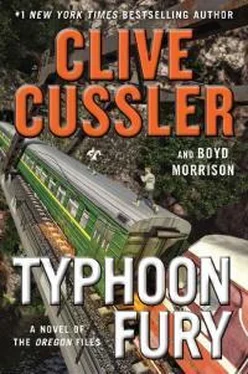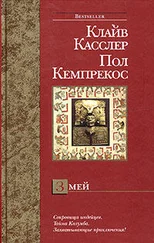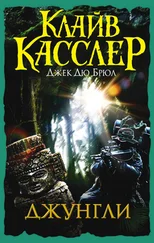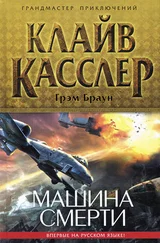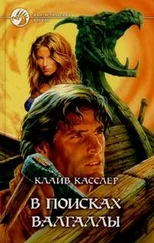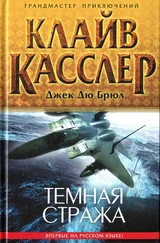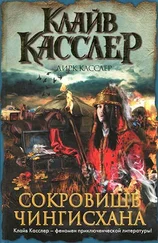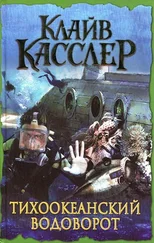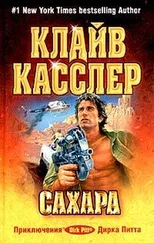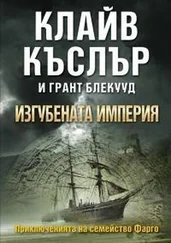By the time their air was exhausted, they had made it through two storerooms, with no luck, marking doors with a large X if the room inside had already been visited.
The dive team had to surface twice more, during the tedious search, to exchange air tanks. By the afternoon, the clear skies were growing ominous as the first tendrils of clouds from Typhoon Hidalgo approached from the east. The gray overcast didn’t deter the fishing boat in the distance, one of several they’d seen the past couple of days, and a ferry lumbered by, a few miles away, making one of its last trips before the storm arrived. If Brekker didn’t find anything before sundown, they’d have to withdraw and seek calm waters out of the storm’s way.
However, on the next dive they struck gold.
The most forward cargo room was one of the two boatswain’s lockers. Brekker forced the hatch open to find that it had been cleared of the tackle and rigging that would normally be stowed there. The room would have been easily isolated from the rest of the ship so that the crew wouldn’t be able to see what was inside.
If any cardboard boxes containing files had been in the room, they had rotted away long ago.
But the real prize was still there.
Twenty orange plastic barrels the size of beer kegs were grouped along the bulkhead, although any ropes lashing them in place had crumbled away. Unlike contemporary Tupperware, these barrels were opaque, so it was impossible to see what was inside until they got them to the surface. One of them had overturned, and the lid popped off. If it had contained Typhoon pills, they had dissolved in the water.
But judging by the weight of the other barrels, they definitely held something. Brekker instructed his men to attach one of the neutral buoyancy floats that they had brought along to the barrel closest to the hatch. Once it was secured to the barrel, Brekker filled the float with air from his tank using his octopus regulator. When the barrel was floating, Brekker took it in tow and swam toward the exit hole. His men stayed behind to retrieve two more barrels.
When they reached the surface, the watchman on board the yacht hauled the barrels aboard with the minicrane usually used to transfer Jet Skis in and out of the water.
Brekker got out of the water and took off his gear while the men toweled off the three barrels. As soon as they were dry, Brekker carefully pried open the lid of the first one. It came off with a pop just like a tub of Tupperware straight out of the fridge.
The top of the barrel was filled with cotton batting, as white as the day it was vacuum-sealed inside. Brekker tore it away to reveal thousands of pills etched with the Typhoon logo. All of them were intact and looked as if they’d been packed away yesterday.
Brekker’s men slapped each other on the back and let out a whoop. One of them said with awe, “How many do you think are in there?”
Brekker thought about the large bottle that held the vitamin supplements he took daily. “I’d estimate there are roughly a hundred thousand pills in here.”
A cheer went up from the five men. With nearly two million of the pills to be brought up and sold to the highest bidder, they all knew they’d be very rich very soon.
“Should we still plant the explosives?” one of them asked.
Brekker nodded and looked at the acoustic trigger that would be used as an underwater detonator. It would send out an audio pulse that could be detected by the receiver miles away, allowing them to retreat to a safe distance before setting off the explosion.
“If anyone ever comes looking for the Pearsall ,” Brekker said, “we don’t want them to know we took the barrels. Put most of the bricks in the ammo magazine. It should tear the entire ship apart.”
• • •
LOCSIN WATCHED the yacht with a telescope while his men continued working the nets on the fishing boat as if they were hauling in a catch. From this distance, the image was fuzzy, but he could tell they had pulled something from the water. He had never seen Gerhard Brekker during the fight in the fire truck warehouse, but he could see which man was ordering the others around. Locsin recognized a fellow leader when he saw him.
After returning to Negros Island, his translator had skimmed the Japanese files and found nothing in the papers relating to a formula for Typhoon. It was mostly notations and data about the experiments that the Japanese had performed on Filipino captives who they’d been using for drug tests. If it hadn’t been for the discovery of the Pearsall ’s location, the dig on Corregidor would have been a complete bust.
He handed the telescope to Tagaan, who watched the activity on the yacht and asked, “Should we take them now?”
Locsin shook his head. “Not until we think they’re finished. We might as well let Mr. Brekker do all the work.”
“What about Juan Cabrillo’s ship? Do you think they’re really coming?”
Locsin grinned. “I know they are. Are you ready for them?”
“Fifty Kuyog drones are prepped and operational.”
“And the bait?”
Tagaan nodded.
“Excellent,” Locsin said, taking back the telescope and surveying the horizon. “Now all we need is a target.”
51
Brekker surfaced with his men and another three barrels to haul aboard the yacht. It had been a long day, but they were almost done. Two more trips down and they’d be able to get out of there with all their loot. Brekker was already considering who would buy the treasure and how much he should charge. The Americans, Chinese, and Russians had the most money, but he wasn’t counting out the Saudis or Iranians. All he knew was that Salvador Locsin had his chance and he blew it. Besides, with the meth shipment in police custody, Locsin didn’t have the funds to pay for it.
Brekker threw his fins over the railing and climbed up the ladder to supervise hauling up the barrels. When he looked over, he froze, stupefied by the sight of Locsin and his men standing over the dead body of the watchman Brekker had left on board.
Five assault rifles were trained on him. He slowly finished getting out of the water. Locsin’s fishing boat had been circling two hundred yards away to avoid being seen as Brekker’s team surfaced. With their return, it now headed toward the yacht.
Locsin smirked at him. “Right now, you’re wondering how I found you here.” He obviously relished echoing the same line Brekker had used on him at the Manila fire truck warehouse. “The Americans left a record of the Pearsall at Corregidor.”
“You killed my man.”
“You and I both understand the need for force to make a point. We appreciate you bringing up the barrels of Typhoon for us. How many are left down there?”
“None,” Brekker said, fighting back the bile in his throat. “This is all of them.” He looked at the three of his men who were left. All of them were eyeing their captors for a chance to attack, but it would be a useless effort.
“I think you’re lying,” Locsin said. “The information we found said there were twenty barrels on board. I only see fifteen.”
“Then why don’t you go down and take a look for yourselves?”
“Because you’re already dressed for the occasion. I may even let you live if you dive down and get the rest of them.”
“And if I say no?”
“Then you die right here, right now. I may be a communist, Mr. Brekker, but I drive a hard bargain.”
Brekker looked at his men and nodded. They would go back down to the wreck. In fact, it would be necessary for what he was planning.
“I need a fresh oxygen tank,” he said.
Locsin waved his hand toward the equipment. “Of course. But remember that the water is crystal clear. We will be watching you.”
Читать дальше
